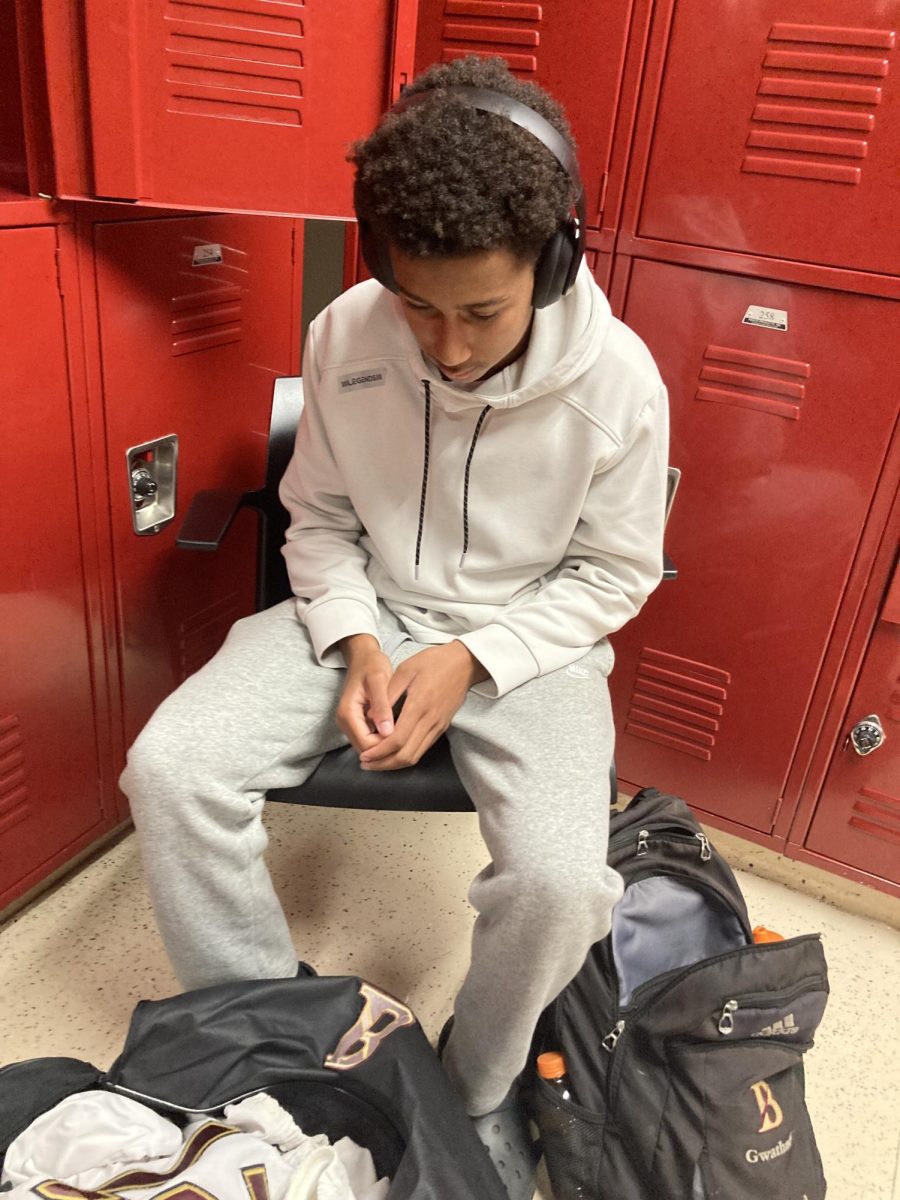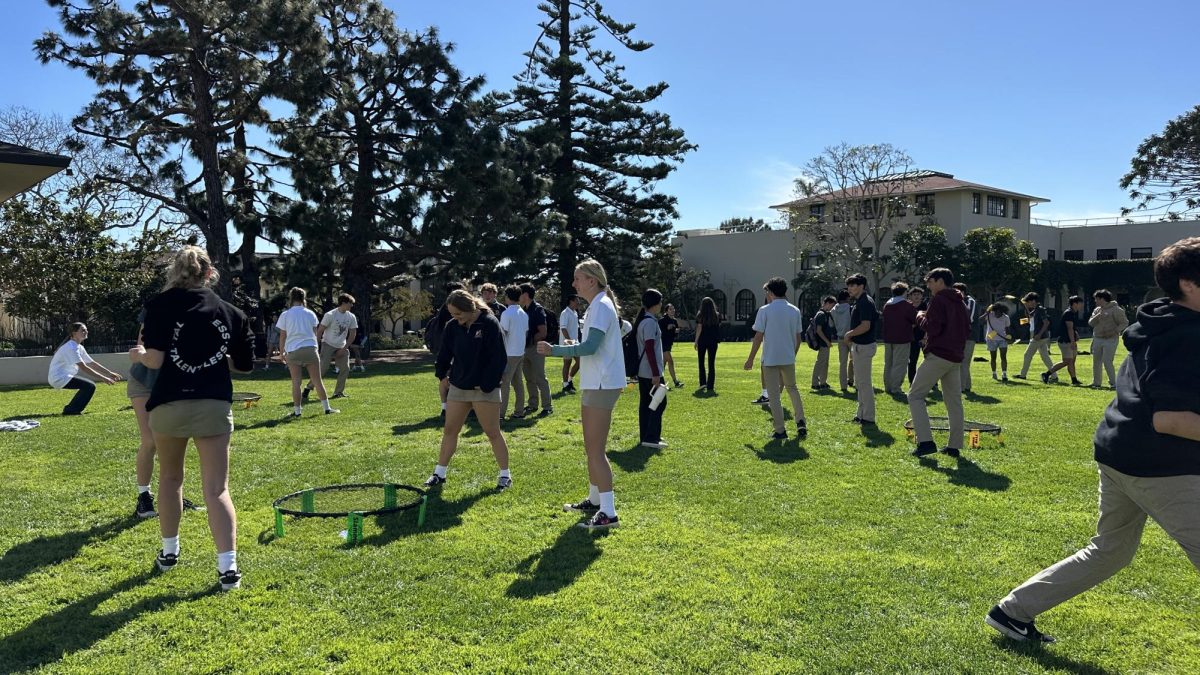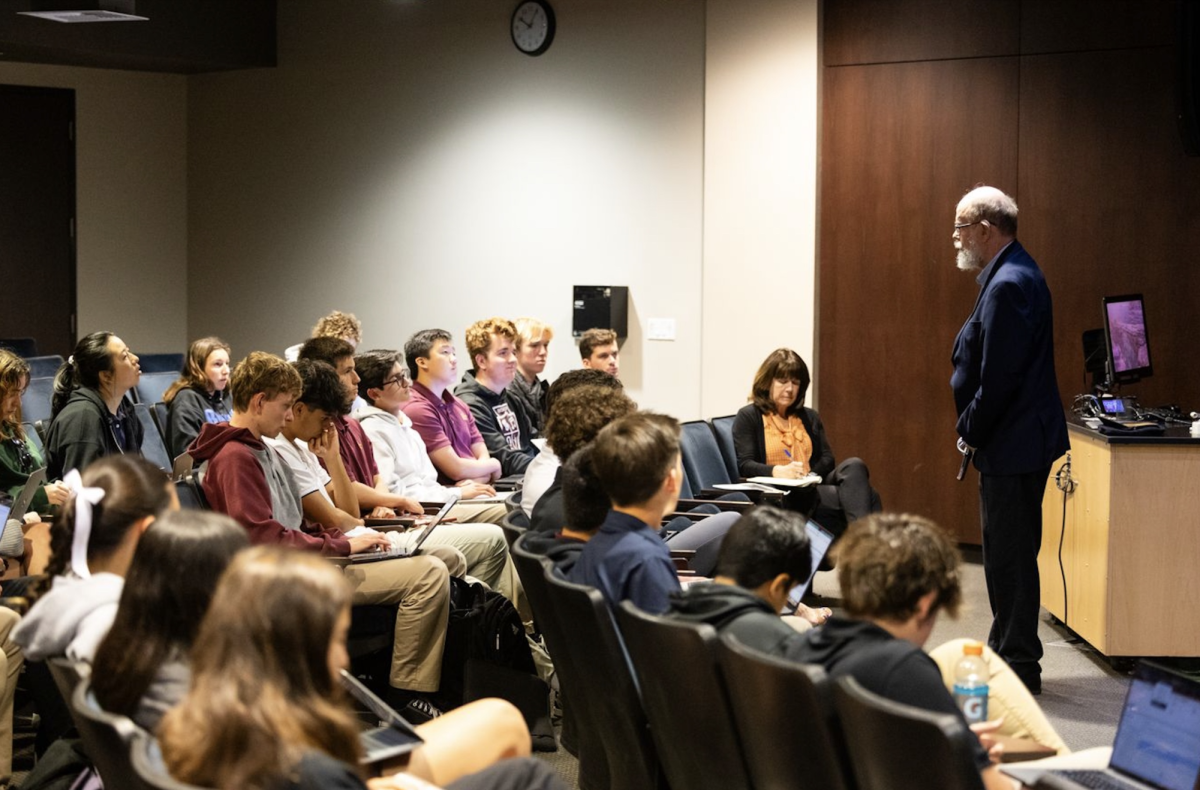“Look, if you had one shot or one opportunity, to seize everything you ever wanted in one moment, would you capture it or just let it slip?” songwriter Eminem raps in Lose Yourself. Chair of the History and Social Science Department Ms. Karri Woods said this was a “pump-up song” that was popular when she competed in high school. She added that the song’s mid-tempo beat and the emotional intensity of the lyrics may enhance attention and mood in preparation for a big game.
Why do numerous professional and non-professional athletes listen to music before games and practices? According to The Health Sciences Academy, many athletes aim to achieve a level of focus and concentration, and music allows them to put aside all of their distractions outside of sports. Furthermore, according to the same article, sports scientists at Brunel University in the United Kingdom, found that music can improve one’s endurance by 15%.
When explaining why, History and Psychology teacher Ms. Emily Smith, Director of Counseling Ms. Meghan Broderick, and School Counselor Ms. Lauren Gray all said that music can help athletes focus and drown out the crowd and distractions. Additionally, student-athletes Henry Armstrong (‘25), Dylan Navarrete (‘24), and AJ Gwathney (‘25) all said that music helps them relax before sports activities as well as allowing them to concentrate and zone out outside distractions.
Building upon the idea of music being a distractor, Ms. Smith said, “It can help us ‘lock in’ since our brains are bad at multitasking [and] easily distracted, so I imagine putting white noise or noise-canceling headphones on can cancel out what is going on around you and just focus again especially [for] athletes who are playing in a big arena with a big crowd helps.”
Football and soccer player AJ, whose go-to songs are Mad Bout That by Year and Capo by NLE Choppa, added, “Before games, I’ll be relaxed and chilling, but a lot of the time my music [right before the game] is what helps me flip the switch into game mode. So I’d definitely say I listen to music to get locked in.”
“A lot of people listen to music that has a faster tempo — something like 120-130 beats per minute — and a pretty solid beat. Our heartbeat actually starts to sync up with the beats per minute (BPM) of the song, which is why music can act as a kind of natural stimulant,” said Ms. Woods.
Reflecting on his college football and boxing career, Strength and Conditioning Director Coach Charles Johnson said, “I had two songs that I listened to. In high school, I [played] offense and defense, so I had songs for both. [The offensive song] was more schematic, ‘This is what I have to do’, [and] the [defensive song] was, ‘Don’t get in my way or else I will run you over.’”
Fast-forward to today’s generation of student-athletes, like cross-country runner Dylan, whose favorite songs include Otis by Jay-Z and Kanye West and Gz and Hustlas by Snoop Dogg. Dylan explains, “Music hypes me up and gets me in the zone. It makes running more enjoyable, even though I’m not the fastest.”
Football and baseball player Henry, whose pre-game songs are In The Air Tonight by Phil Collins and Would? by Alice In Chains, commented, “I listen to music to help me focus, spark some energy or to loosen up, it really depends on the sport. [For] baseball, I try to feel more loose so I try to listen to happy music but for football, I try to play serious music or music that will get me excited.”
Relating music and its effect on athletes to psychology, Ms. Broderick mentioned the term confirmation bias: “If I believe that listening to music before my game is going to improve my performance, I am going to look for evidence to support what I already believe. If I perform well in my game, that will serve to confirm my pre-existing belief that music helps my performance.”
Ms. Gray further explained, “Confirmation bias is more you look out and acknowledge more strongly facts that agree with what you already know. Maybe you believe listening to a particular song or playlist or whatever will help you be more successful [and that] may highlight for you in retrospect the moments you were more successful and devalue where you struggled.”
But whether or not listening to music is truly beneficial to athletes is another question. An article by the National Center for Health Research said that studies have shown that faster-paced music helps athletic performance. It gave a 2006 study example that said that as participants listened to fast-paced music, they increased their pace and distance on the treadmill without feeling more fatigued.
According to the same article, a 2010 study by renowned sports psychologist C.I. Karageorghis states that music can distract athletes from pain through “competing sensory stimuli” as the song is distracting one from pain or fatigue. According to this study, the effects of music lead to “higher-than-expected levels of endurance, power, productivity, or strength.”
Music can elicit emotions, recall memories, improve focus, reduce stress, and improve performance. Listening to music during exercise enhances athlete performance by maintaining an optimal state of arousal. Arousal is defined as “an individual’s state of being awake, alert, and attentive” according to an article published by the University of Washington-Eau-Claire
Henry added, “It distracts my mind from focusing on the little pains in my body and when working out, it definitely helps motivate and excite me. It definitely helps, sometimes some external motivation which can easily be found through music can go a long way.” AJ also said, “Music can definitely inspire some changes in how I play, like my levels of aggression.”
Regarding mindset and music and their correlation Ms. Gray said, “It’s a really unique experience and I think that if [music is beneficial to you], it is probably more about your mindset and your belief that the music is helpful, which is setting you up to be in a good state of mind. If the same music makes you calm or makes you focus or whatever, then that’s a better mindset to win with.”
Coach Johnson, whose pregame songs were Right Now by Van Halen and Zombie Stomp by Ozzy Osbourne, said “I think it gives them[students] better energy and more desire to be in here[the weight room]… If that’s gonna help you get through your workout and give you the energy you need, go ahead. So long as you can hear me coaching you.”
On the contrary, pertaining to the harmful effects, Coach Johnson said, “I’ve got to be cautious of what I put on since sometimes it takes the focus away from the lifting which I don’t like. It turns into a party almost, and the students are dancing with their buddies. This is cool, but you are not keeping to tasks, you’re letting music distract you, [and] there is a fine line!”
“If you are watching a basketball team warm up, they probably aren’t listening to a slow, acoustic ballad by Taylor Swift because it won’t be very helpful for boosting the collective energy of the team. To get ‘pumped-up’ before an athletic event, you need to listen to songs that include musical stimuli like tempo and syncopation that tend to enhance both psychological and physiological arousal,” laughed Ms. Woods.
Ms. Broderick noted, “We would never want a young person to only credit music for their success in athletics. Music may be a factor that helps them stay focused and motivated, but ultimately it is their talent, effort, and determination that will bring them success.”
In the end, despite there being potential positive and negative effects to listening to music before sports activities, Ms. Broderick and Ms. Gray both said that it is really dependent on the individual whether or not listening to music actually helps them focus and get hyped up or not.









